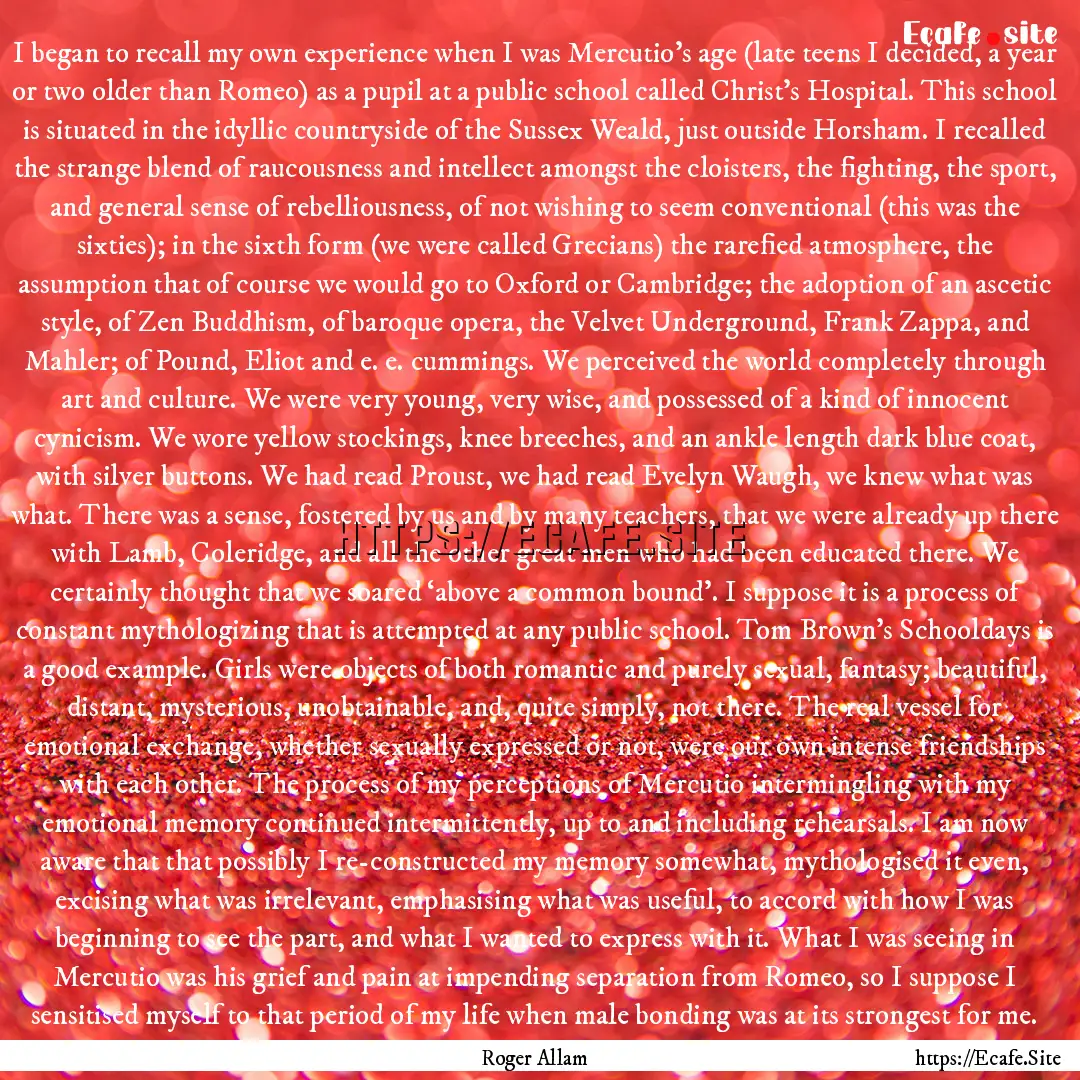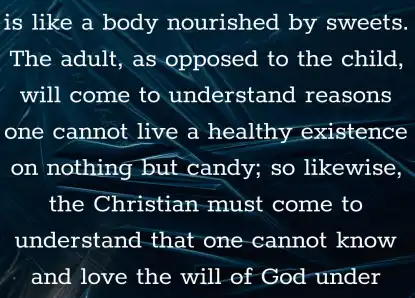
Report, if you have a problem with this page“ I began to recall my own experience when I was Mercutio’s age (late teens I decided, a year or two older than Romeo) as a pupil at a public school called Christ’s Hospital. This school is situated in the idyllic countryside of the Sussex Weald, just outside Horsham. I recalled the strange blend of raucousness and intellect amongst the cloisters, the fighting, the sport, and general sense of rebelliousness, of not wishing to seem conventional (this was the sixties); in the sixth form (we were called Grecians) the rarefied atmosphere, the assumption that of course we would go to Oxford or Cambridge; the adoption of an ascetic style, of Zen Buddhism, of baroque opera, the Velvet Underground, Frank Zappa, and Mahler; of Pound, Eliot and e. e. cummings. We perceived the world completely through art and culture. We were very young, very wise, and possessed of a kind of innocent cynicism. We wore yellow stockings, knee breeches, and an ankle length dark blue coat, with silver buttons. We had read Proust, we had read Evelyn Waugh, we knew what was what. There was a sense, fostered by us and by many teachers, that we were already up there with Lamb, Coleridge, and all the other great men who had been educated there. We certainly thought that we soared ‘above a common bound’. I suppose it is a process of constant mythologizing that is attempted at any public school. Tom Brown’s Schooldays is a good example. Girls were objects of both romantic and purely sexual, fantasy; beautiful, distant, mysterious, unobtainable, and, quite simply, not there. The real vessel for emotional exchange, whether sexually expressed or not, were our own intense friendships with each other. The process of my perceptions of Mercutio intermingling with my emotional memory continued intermittently, up to and including rehearsals. I am now aware that that possibly I re-constructed my memory somewhat, mythologised it even, excising what was irrelevant, emphasising what was useful, to accord with how I was beginning to see the part, and what I wanted to express with it. What I was seeing in Mercutio was his grief and pain at impending separation from Romeo, so I suppose I sensitised myself to that period of my life when male bonding was at its strongest for me. ”

Roger Allam
From : Players of Shakespeare 2: Further Essays in Shakespearean Performance by Players with the Royal Shakespeare Company



